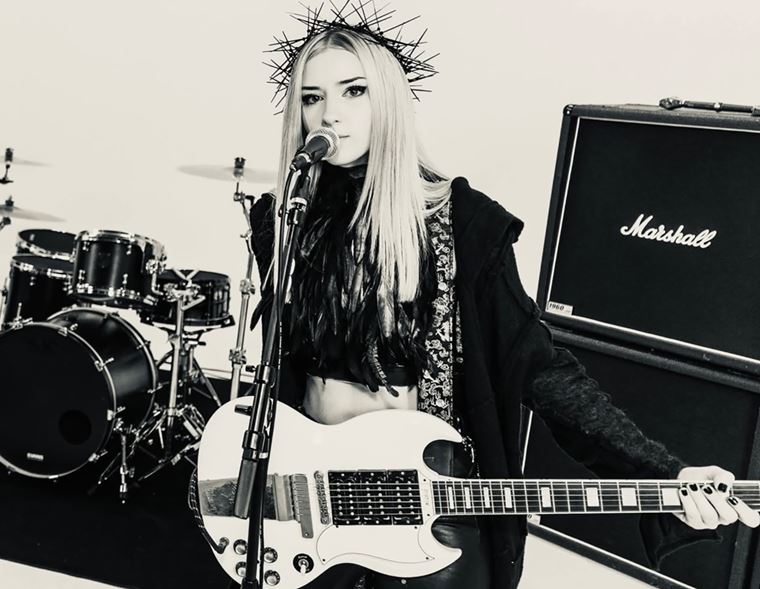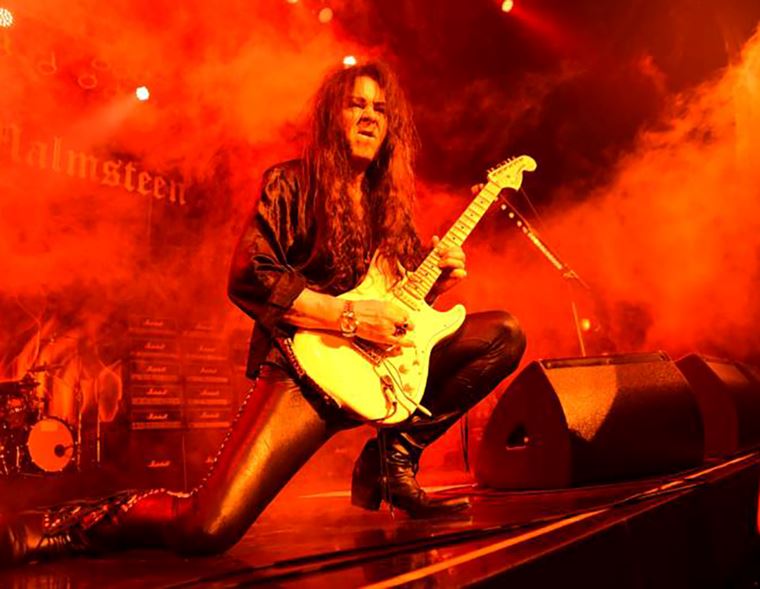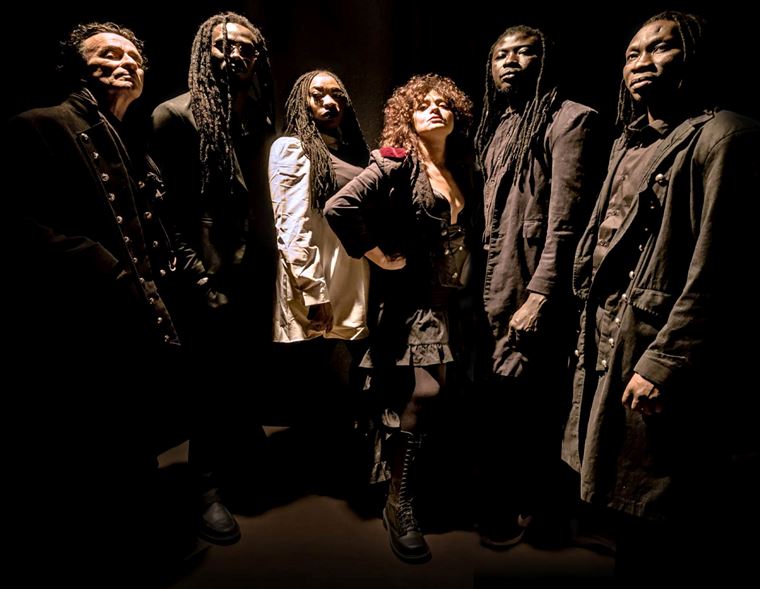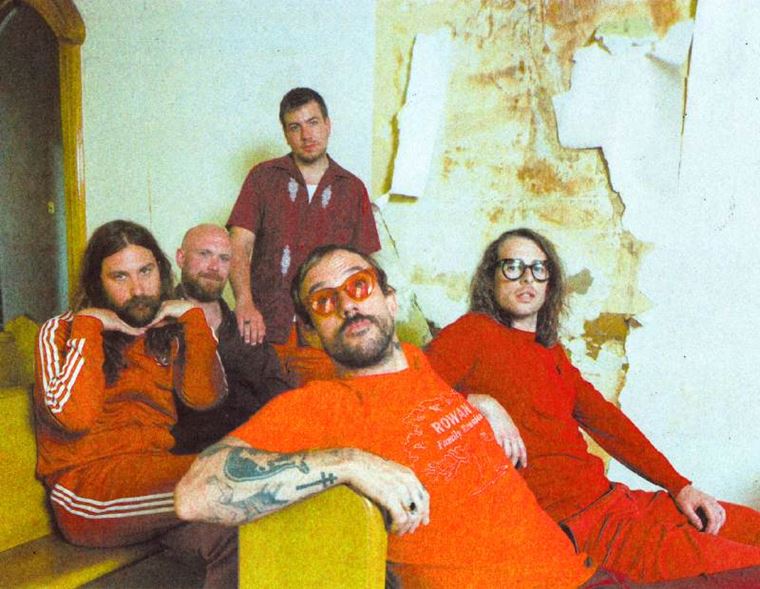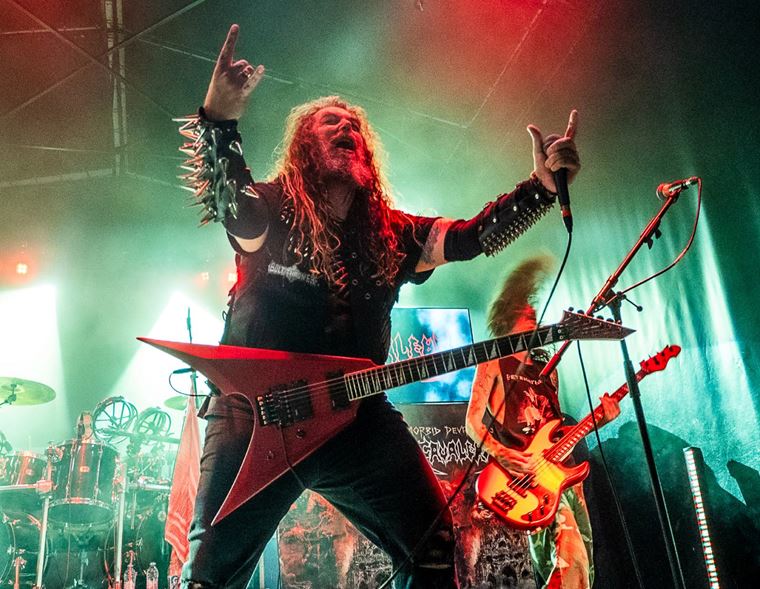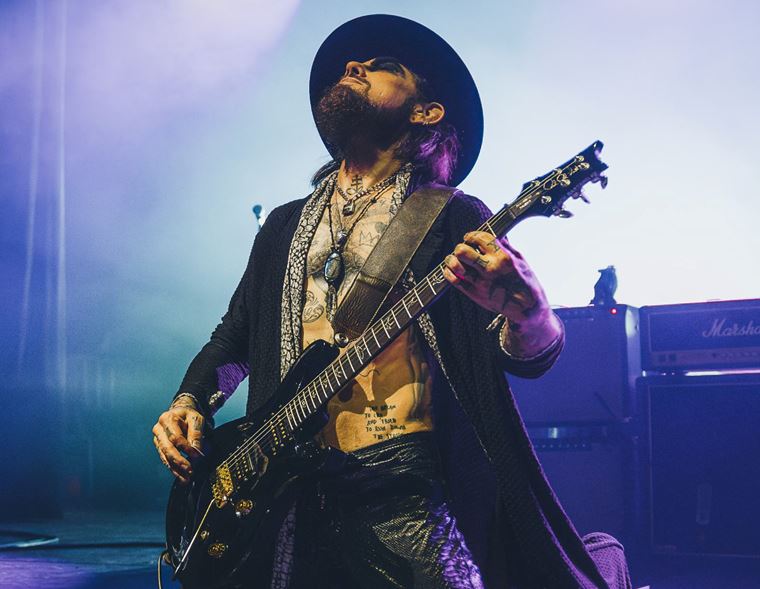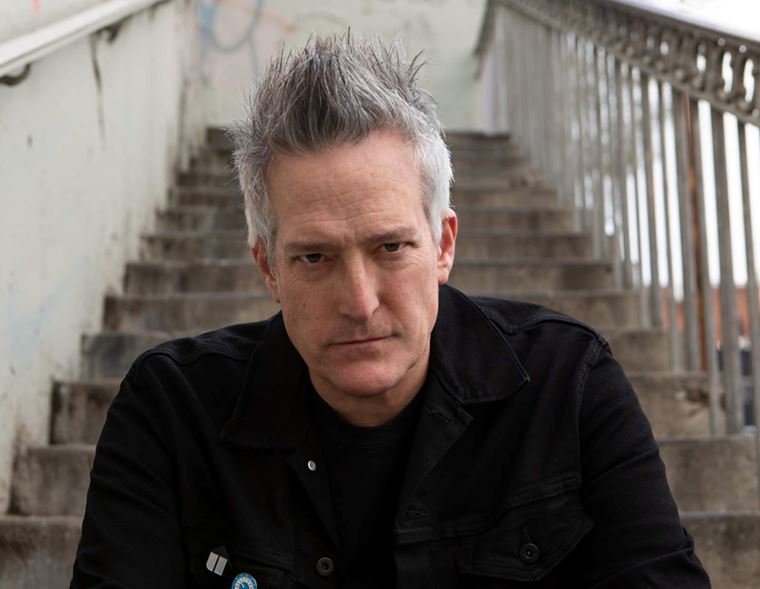The guitarguitar Interview: Billy Corgan
Published on 19 July 2019
I’ve been trying to get hold of Billy Corgan for years. Professionally, I’ve spent two years requesting, asking, reminding and persisting with various PR people to try to get an interview with the Smashing Pumpkins’ main man. Personally, it has been a lot longer.
I was 13 years old when Mellon Collie and the Infinite Sadness was released. I’d been playing guitar at that point for around three years and the sounds on this vast, sprawling double record blew me away. Everyone has their life-changing musical moments, and this was one of mine. Mellon Collie was light years away from the other records that came out that year. In terms of scope, vision, ambition and variety, this third album by Chicago’s Smashing Pumpkins has it all, and it has remained fresh and impressive despite the passing of over two decades.
The Smashing Pumpkins are one of the biggest selling bands of the modern era with well over 30 million album sales (Mellon Collie itself sold over 10 million). Though each album- from the dream-fuzz of Siamese Dream through the Gothic, windswept electro of Adore- the Pumpkins have had a shifting yet always recognisable sound, with Billy Corgan’s distinctive voice and unequalled songwriting at its core.
The guitar playing has always been particularly epic, too: between Corgan and fellow guitarist James Iha, they brought boundary pushing tones, textures and hair-raising solos to a genre often afraid to go for greatness.
I’ve always thought that the guitar playing in the Smashing Pumpkins was underrated and under-appreciated. That was part of my motivation to seek out an audience with Corgan.
My ambition sharpened in focus when a rare solo Billy Corgan acoustic show was announced close to guitarguitar’s Central Support office in Glasgow. In the end, it was our friends at Yamaha who broke through the PR red tape and won us a thumbs up from Corgan himself. Yamaha make his superb signature guitar, the LJ16BC, and this was ostensibly part of what I was to talk about.
It was on!
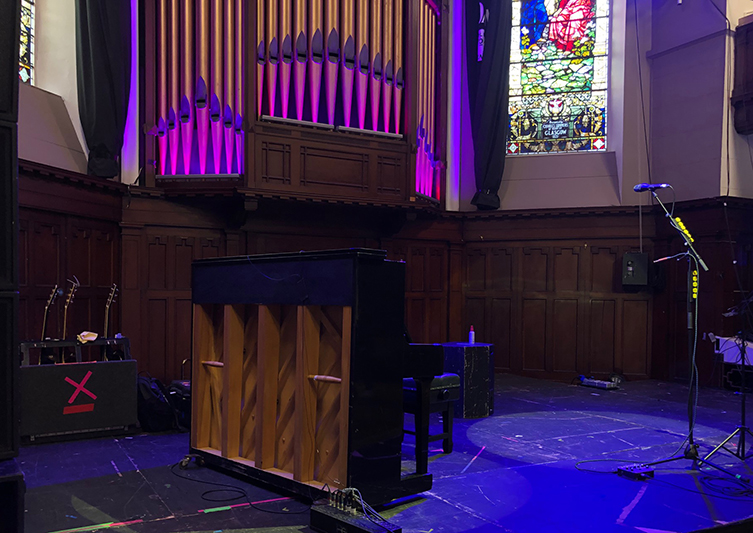
My opportunity to speak with him came the day after the band played a triumphant show at Donington’s Download festival. Billy had travelled up to Glasgow for the show and had a million things on his mind. Never the less, I was warmly welcomed into the dressing room at St Luke’s, and offered a seat on an artfully distressed couch as Billy boiled the kettle for a cup of his signature Madame Zuzu’s tea.
We ended up talking about lots of things, though I admit my question sheet didn’t get looked at much! We didn’t even get to chat specifics about guitars, though that’s often the way. I think that what we did talk about is much more interesting, as you’ll hopefully find as you read through this fully transcribed interview.
What’s important to note with this conversation is Billy’s tone. He is a direct, forthright person but also pleasant, courteous, quick to laugh and easy with a friendly smile. He made me feel welcome and found me a bottle of water as we began. His tone throughout our chat was amiable and accepting, so when he describes some of the stranger things the Pumpkins have been through over the years, it’s important to note that there was never a ‘complaining’ tone in his voice, a fact that often gets lost in transcribed interviews.
After inviting me into the dressing room, we began chatting immediately, before I even had the chance to hit the record button! He’d been saying about how he doesn’t often give interviews these days. I countered with my opinion that he was an influential and under-rated player, which kind of brings us up to here...
Billy Corgan: I think it’s a lot to do with...they have a hard time that I’m the front guy and a player. It’d be easier if I was just the guitar player.
Guitarguitar: I think so.
BC: It’s almost like it’s too much for them or something, or its the ‘alternative’ thing, like, ‘oh, you play alternative so you don’t play guitar’, I don’t know...
GG: Yeah there was a bunch of that but now we’re getting to the stage where it’s different guys that are writing about it now, guys like me who grew up listening to the Smashing Pumpkins, so we can address that.
BC: Yeah, I don’t really care because...
GG: Haha!
BC: No, but what I mean by that is because there was a time I really cared because I grew up a guitar player, and my Dad was a guitar player, and it was a big deal to be on the cover of the guitar magazines, and the manufacturers wanted to make guitars and then...one year it just stopped. I wasn’t that guy anymore, and so I had years and years and years where they completely ignored me: it didn’t matter what I do, it didn’t matter if I made guitar albums or not, they just had zero interest. They wouldn’t interview me; they wouldn’t talk to me...nothing.
GG: That’s so strange!
BC: Yeah! Don’t ask me why, it’s changed a little bit in the past couple of years but...
GG: Do you feel like you’re riding a bit of a wave again?
BC: I don’t really know because the Pumpkins thing is so complicated, you know? And where it’s confusing is that we made it complicated on purpose, which we wanted, but then people made it complicated in ways that we didn’t have anything to do with. Then you’re sort of supposed to deal with that complication, even though it wasn’t from you, so it’s sort of a weird thing. And so people confuse the fact that the band was supposed to be complicated, it’s almost like you tell someone like ‘yeah, I’m a bit of a messy personality’ and then they form a personality about you but they forget that you’re the one who told them the thing to begin with! They think that they thought it up first.
GG: And then they make assumptions based on that.
BC: Yeah, and then we’re like ‘No, no, you don’t understand: we started this! And then at some point, it just becomes too confusing. The internet moves too fast, you can’t...I literally will write things, or say things, and it’s like ‘I never said it’ and people will ask me like it’s never been addressed.
GG: Yeah.
BC: So then you learn that it doesn’t matter how many times you address rumour A through Z, because 99% of people won’t hear it and they’ll just keep asking. So, then you just stop talking because it’s sort of like, it’s better to actually say nothing because there’s no way to fix it: it’s its own monster and maybe it’s a good thing, but it’s a good monster and a bad monster. Some days it works and some days it doesn’t and there’s nothing you can do about it so you just learn to move on. That’s a complicated way or saying ‘I don’t give a fuck’...
GG: Hahaha!
BC: But, yeah.
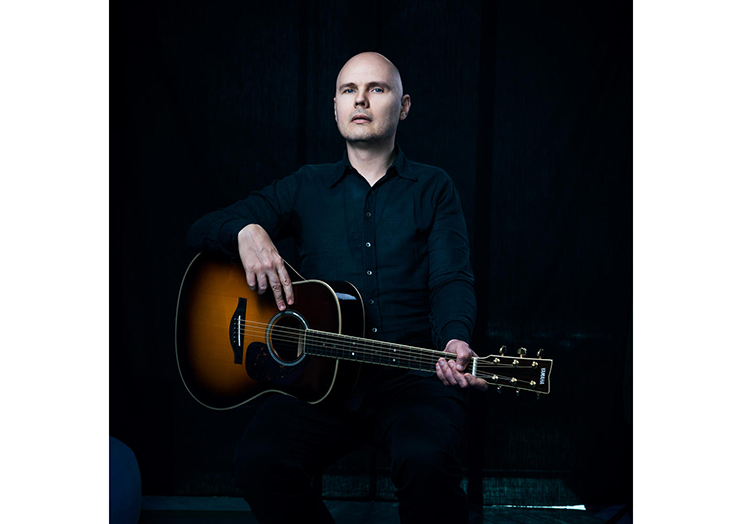
GG: That’s kind of, in one respect, like Machina (Pumpkins concept album from 2000 before the band split). I remember at the time, when it came out, the idea was that you guys were almost playing a fictional version of yourselves.
BC: Yeah.
GG: And that’s something that the press, certainly over here in the UK, never picked up on as much, but you guys were playing roles to a degree, right?
BC: Yeah, that was the idea but the band kind of abandoned it! Which made it even more confusing.
GG: I was one of the guys who bought the CD-R copies of Machina II because of course it was never released officially.
BC: Yeah, yeah.
GG: But that was a bigger part of the Machina story wasn’t it? All these extra songs, ‘Glass’s Theme’ and all the rest of it.
BC: Yeah, it was written as a full concept record and because of the internal issues within the band, and the fact that it went on forever, at some point I just went ‘Ok, I’m just gonna pull the ripcords and just pick some group of songs from this that makes sense and that maybe somehow through all of that and it’ll all work itself out’, and it didn’t!
And then we actually started to gain some momentum during the touring, it was the first real momentum we’d seen as a Rock band in a few years. And then we went back to the label and said ‘you know, there’s some real movement here in the market, we’ve got this other record, we’d like to put it out, um, we think it’s kind of a cool story’, and they said ‘fuck off’.
GG: Really?
BC: Yeah. So, then I got mad and said ‘okay, to hell with you’ and then we just leaked it on the internet.
GG: That was such a cool move.
BC: And most people acknowledge our brothers in Radiohead as being the first online free record (2007’s ‘In Rainbows’). Um, we don’t get credit for that. And fans love that record, and then they (the record company) went ‘wait....’ and then they got really curious. Then, when we got some real movement, the band broke up!
GG: Ha!
BC: Hahaha, it’s classic.
GG: Machina II has some of my favourite all-time Smashing Pumpkins songs.
BC: Oh, cool!
GG: Absolutely, ‘Innosense’ in particular.
BC: Yeah.
GG: So Radiohead got credit for that and also Nine Inch Nails for giving away a record online (2008’s The Slip) but you guys were...that was what, 2001?
BC: Yeah, 2000.
GG: So it goes. Legacy will say otherwise. History is written after the fact.
BC: Oh, yeah yeah, no it’s fine, it’s just...it was a confusing time because it was, like, nobody knew what the internet was, even at that point.
GG: Mmm-hmm, that was Napster time with Lars Ulrich.
BC: Yeah. I had more faith at that point in the fan base to help correct the record but that was my own misunderstanding. In my mind, at that point in year 2000 internet culture, I saw the band as being in partnership with the audience.
GG: Sure.
BC: And you know what I’ve learned over time? It’s that the audience doesn’t want to be in partnership with the band. The audience wants to be the audience!
GG: Yeah.
BC: They don’t want to be on stage, they want to be entertained. I mean, you try and make them, like, a partner, it’s almost like ‘wait, you’re asking me to do something for you? Well, what do I get?’
GG: Uh-huh. Hahaha!
BC: it’s like ‘where’s my free stuff?’
GG: Wow, really?
BC: Yeah, it wasn’t like ‘oh, we’re in this together’. That didn’t mean anything. There were of course some who got it.
GG: What a strange learning experience for a band, to have that.
BC: Well, yeah but it’s hard to say because we were such a different animal back then. We were not afraid to ‘step in it’, I mean: I said a lot of things, we did a lot of things, we purposely blew ourselves up, which nobody can understand...it was like: ‘why would you do that?’
GG: Yeah.
BC: It’s counterintuitive to being famous, or whatever. It seems silly now because nobody cares! I don’t mean about us: I mean like nobody cares about that type of stuff anymore because it’s all such a sell-out.
GG: Yeah, well that has really changed the playing field, hasn’t it?
BC: I mean, the stuff we did seems tame by comparison! I mean it’s basically like porn now, haha!
GG: Haha! That’s true! So, there’s a couple of things I would love to chat about, I don’t know how specific you want me to be about it being ‘acoustic stuff’ since that’s the tour, or...
BC: Don’t care, ask me whatever you want.

GG: Awesome! Well, considering how long I’ve been a fan, it’s really cool to have the access so thank you. So, the songwriting process: is that something you sort of plan time out ahead for, like ‘I’m gonna right a batch of songs here at this point’ or is it an ongoing, everyday type of thing for you?
BC: Um, these days because of just time, it’s more of an ‘I have to do it now’, like ‘here’s the period’. This year I started writing, I think, on like January 6th, and I wrote literally until the day we left to go to Europe to rehearse.
GG: That’s awesome.
BC: So I think I wrote songs and we tracked songs, which for us is still always writing, umm, for 4 months straight. And then went right into rehearsal and had to completely (snaps fingers) switch gears and go into Pumpkin world for a period. All the gear, and ‘what tuning are we in?’ and all that, right on to the festivals and soon as I go home...I do this (acoustic tour) for two more weeks and then one more week of Pumpkins and as soon as I go home I work for two more weeks on the record, and go right back on the road for the Noel Gallagher/AFI tour and then after that I go right back to the record.
GG: Wow, I’m tired just hearing that!
BC: And then I work basically, almost to the end of the year, I think.
GG: Jesus.
BC: And if the record’s done in time, hopefully by November or something, then I’m going to go and do some shows for my solo record, which is going to come out later this year. I’m happy in the sense, that, I like being busy.
GG: Good busy.
BC: The right kind of busy. Music.
GG: Is there a ‘Pumpkins Billy Corgan’ and a ‘solo William Patrick Corgan’?
BC: No, no.
GG: You just write and...
BC: You know, I think...I take your question slightly differently. Um, I’m conscious of what I’m writing for, but it doesn’t mean...it doesn’t mean anything other than...it’s like saying to me, um ‘you’re gonna be playing a Smashing Pumpkins gig tonight, what colour do you want to wear?’ ‘Well, I wanna wear orange’, and then you’re like ‘okay, you’re playing a solo gig tonight, what colour do you wanna wear?’ ‘Actually, I wanna wear orange again’.
GG: Got you.
BC: It doesn’t affect what comes out, it just gives me like a picture frame. So yeah, I’m more inclined to be more dynamic as it pertains to the Pumpkins stuff, and with acoustic music or solo music, I’m more inclined to be ‘singer-songwritery’ but there’s not a delineating point. And as I say sometimes on my Instagram, I mean, in my mind, it’s all the same. And it’s kinda weird, because if this gig was called ‘Smashing Pumpkins’ tonight, ‘Smashing Pumpkins Solo Acoustic’, I would sell three thousand tickets or something.
GG: Sure.
BC: It’s kind of a weird thing because it’s...it’s a name.
GG: Yeah, everybody already knows you’re the main songwriter of the Smashing Pumpkins...
BC: I never can wrap my head around this...
GG: It’s a branding thing, right? Or is it?
BC: (Smiles) I have no clue.
GG: Hahaha!
BC: I honestly don’t know!
GG: OK, fair enough!
BC: I honestly don’t know, and again, I’m not complaining, it’s more, I just don’t get it. I just don’t get it. And it’s totally fine because, for the type of music I’m going to be playing tonight, this is actually the right-sized venue. Because anything past, like, 800 people, it gets really hard to keep people quiet during a bunch of songs they don’t know (Billy performed 8 brand new songs for the first time ever later that night) and then you have to play a bunch of songs that you know are going to keep people ‘up’, so this concert can be what it is because of its size.
GG: Yeah
BC: But it’s still weird to me that the dynamics and the economics are sort of based around an awareness which really doesn’t have anything to do with the reality.
GG: Yeah, it’s really an outside factor, isn’t it? Compared to the songs that are all coming from the same place originally.
BC: I don’t know. We tried to address it at different times, and it doesn’t really change anything so...(laughs) again, I’ve just given up and I just go with it, whatever it is.
GG: Well it seems to be working, right?
BC: (lighthearted and humbly) Yeeah!
GG: It’s bringing...I won’t say success because you already enjoy massive success, but it’s a nice wave to ride.
BC: I think, even with any musicians, you’ve got to feel that what you’re doing now is important and the past is fine but...of course, other people rate your past based on their own perception.
GG: They do.
BC: So, you know, you like ‘Machina’, so it’s like, I could talk about that for an hour and you’d be interested, but another journalist wouldn’t even ask me a question about it because it isn’t even on their radar! They just want to talk about Siamese Dream.
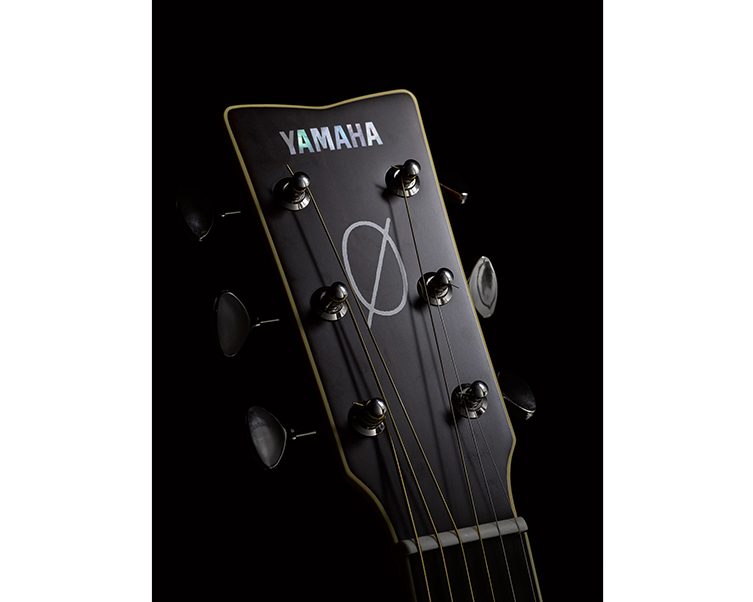
GG: Yeah, that’s part of the thing about the Pumpkins: I could...if somebody said to me ‘what do the Smashing Pumpkins sound like?’, I could say a sentence that would fit all the records but then you listen to each one and they’ve all got a distinctly different sound within them.
BC: Yeah.
GG: So, off that, one of the things I wanted to talk to you about was guitar tone.
BC: Yeah.
GG: Like how, for example, the Mellon Collie rhythm sound is nothing like the Machina one.
BC: Yeah, purposely. It would force me to play differently.
GG: That’s one thing I wanted to get into actually: the relationship between what you’re using to write and what’s coming out. I remember a really cool story about when you were working in a record ship as a young guy, and you had the acoustic guitar hidden away under the counter. That’s how Shiva was written, isn’t it?
BC: Yeah, that’s true, yeah.
GG: For me, Shiva’s like this massive, dynamic thing...
BC: Yeah.
GG: When I pick up the acoustic guitar, I’m all like ‘Wicker Man’, folky kind of stuff. So are you able to go ‘I want to write a big massive riff’ and it doesn’t have to be on the electric guitar with the amp and stuff?
BC: I almost never write riffs on the electric.
GG: Really?
BC: Oh yeah, almost always on acoustic.
GG: Oh wow!
BC: Oh yeah. Or bass. Bass is really good for writing riffs.
GG: Yeah.
BC: I find that. I don’t know why. I think it’s just, I went to the ‘Iommi School of Riff’...
GG: Me too.
BC: Great! And so, if you look at most great Iommi riffs, they’re simple, but within the riff itself there’s a sort of aesthetic. You know? So when you hear ‘Iron Man’, it’s like doom and gloom or whatever, you know what I mean? It’s like...it’s the way he plays the riff and the rhythm of the riff.
Yesterday we played (Black Sabbath song) Snowblind at Download and it’s just such a cool, it’s very goth-ey, it’s like, I mean, the aesthetic emotional value is in the riff. It’s like: how the fuck does he do it? But he does it! So, that was always my approach.
So, if I can play it on acoustic, and I can play it on a bass and get that feeling...if you have to play a rock riff through an amp to get that feeling...
GG: Yeah, you’re maybe relying on something that’s a grade B riff rather than a grade A riff.
BC: Yeah, well if it’s something like Speed Metal, I could see why you would need it, it’s kinda part of the thing, but for just like a good Rock ’n’ Roll riff, anything below like 140 bpm or something.
GG: What you are saying about the Sabbath riff, that’s how I feel about (Pumpkins song) ‘Where Boys Fear to Tread’.
BC: Mmmmm (nods).
GG: That’s one of those defining riffs that, like, should be in Guitar Hero and stuff, one of those really famous riffs that everybody should know...maybe because it was part of a really huge opus, Mellon Collie, and wasn’t a single?
BC: Yeah.
GG: But what a ridiculously amazing riff. That’s not really a question, hahaha!
BC: Yeah, no I appreciate it! What’s weird about that riff is that I just picked up a guitar and I just played it.
GG: Really?
BC: I wasn’t like, ‘Oh, I ‘, gonna write a riff’, I just picked up a guitar and was like (hums and mimes riff) and I was like ‘oh, that’s cool!’
GG: It’s got such an attitude to it.
BC: Yeah, for a long time, that was our opening song for the Mellon Collie tour, it was a good opener to settle us into the night, and, um, we never felt the crowd was behind the song, it was weird! We always thought the song was better than the audience response, if that makes any sense...
GG: Yeah, it does.
BC: Some songs you play and think ‘Oh, it’s not that good a song but they love it’: this was the opposite, it was like ‘this is cool’ and...nothing. I’ve been talking about playing it again because, when we would play it live, James (Iha, pumpkins guitarist) would play the E-Bow ‘Eeeeeeeh’- whatever thing, uh, because if you play the riff with two guitars, you lose a bit of the aesthetic with the E-Bow. But now, with three guitars (the Pumpkins now also have Jeff Schroeder on 3rd guitar), I think we can do it like it is on the record.
GG: Nice, because a big part of the rhythm sound of the Pumpkins is heavily multitracked, right?
BC: Yeah, well it depends on the album but yeah, essentially yeah.
GG: Whenever anyone says to me ‘what do the Pumpkins sound like’, I always recommend ‘Jellybelly’, although there are so many sounds to the band, and that’s nothing like ‘Soma’ for example, but if someone wants to hear the rocking side of the Pumpkins, it’s kind of like it’s got a kind of ...euphoric thing along with this huge sound.
BC: Yeah, I wanted that to be the first single off Mellon Collie and the record company wouldn’t have it (laughs).
GG: (Sigh)Man. It’s got everything! And it’s really short as well!
BC: But hey, they picked right with Bullet with Butterfly Wings so I can’t complain...haha!
GG: They did! They did. But on tracks like that, I used to read stories that you were laying down up to forty tracks of guitar, is that true?
BC: Mmmm, no, not on that one. Um, I don’t know, on that one, that would just be a double track on the rhythm one and we’d just go to town on the overdubs.
GG: Nice
BC: But also, back then, we’d try to put in a lot of inner-riffs, playing with octaves and stuff so it’s like, there’s a lot of band practice where I kind of go ‘when I go here (mimes lower fret area of guitar), please go there (mimes higher up). You know, if we’re playing in ‘D’, or in Mellon Collie we were tuned down so it would be a C#, but you know ‘when I hit this note, hit the 3rd over here’ so we get that that ‘yyyyawww’...
GG: Orchestration...
BC: Yeah, a little bit, and then I would take that structure and then overdub on top of that. So suddenly, there’s a full chord, and little hidden shit that you would never notice unless I pointed it out.
GG: Or, you listen to it 800 times and it reveals itself over time.
BC: Riiiight, and that’s where drugs help you (laughs).
GG: Haha, true enough! I was talking to my girlfriend earlier, she’s a massive Pumpkins fan too, and one thing...I’ve felt this myself but she worded it better than me, but a lot of your lyrics over the years suggest a kind of, I’m going to say an ongoing conversation with some sort of divine element...
BC: Heheheheheh! I like your girlfriend!
GG: Haha!
BC: She’s a keeper!
GG: Oh, she certainly is haha! Well I was wondering if you maybe share more about what that divine aspect might mean to you? That ongoing search that maybe the music is a part of?
BC: Uuuuh, I don’t know: it’s hard to separate, let’s call it an inner conversation which is just Man’s existential crisis, which comes and goes depending on life, death, all that type of stuff. And then trying to figure out like, if you’re gonna have a song...are you really...saying anything? And then at some point the process becomes integrated within me where I don’t actually think about it. Like I don’t think about: hmmm, Man’s existential crisis, you know? I mean, I’m in constant existential crisis and it just kinda comes out that way!
GG: Yeah, I’m with you.
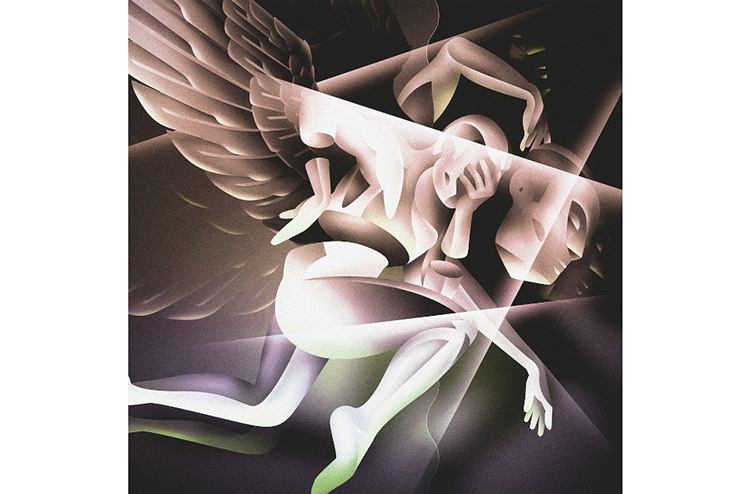
BC: I mean, there are literal things that I can point to, and I’m actually toying...I’ve never done it as a ‘gig thing’, where I would tell the stories behind the songs, because it’s generally not my thing to talk any more, but I’m actually thinking of doing that for the first time tonight to just start experimenting with it, instead of just playing song after song. And so...yeah, I don’t know, I think songs, from a lyrical point of view, it’s such a host of emotional and environmental factors because there is an obsessive quality with every writer or artist where...it’s like Picasso painted the Madonna about 42 times, you know? Or Roger Waters with The Wall and his mother, or whatever, you know? There’s this kind of underlying pathos that reveals itself through repetition...
(At this point, the Tour Manager knocks on the door: we’re gonna have to start winding down)
BC: ...and there’s the sort of early version where you dip your toe in the water. And there’s the version where you’ve written about something for thirty years and you go ‘Haven’t I said this before’? Is there a different way to say this same thing so it reflects ‘Yes, I’m still obsessed with the subject but I’m actually on a different place on the time line.
GG: Mmm-hmm.
BC: So you’re not just using the same words or the same vernacular, the same rhythm, you’re trying to mine out a different type of data. That’s what I like about the acoustic music I’m doing. The next, record, which is done -it’s been sitting there for 6 months- it’s 17 songs.
GG: Wow
BC: And it’s kind of a deeper darker record than the one I made with Rick Rubin. And the language is way more ornate that the Pumpkins stuff because the emphasis point with that kind of music is: I need to fill the space with something because I’m just fucking playing a guitar, haha, an acoustic. Which is a Yamaha.

GG: Haha, I was gonna get to that!
BC: There’s your cheap plug! Yeah so I find that then, okay, I need, like there no guitar reeling over the top so I feel the ornate language...there’s no real way to answer the question, it’s just, you’re just trying to find something where you go ‘okay, that’s different’.
GG: Yeah
BC: Yeah, so in a weird way, to answer it succinctly, I feel I’ve been saying the same thing for thirty years, and I just keep finding different ways to say it.
GG: And isn’t that true of all great art anyway, right?
BC: I don’t know, I think, I’m a bit of a junior historian, and I think there’s different existential crises and I think that one, for the artist, that most don’t talk about, is: yes, I may have relevance in this time frame, of yes, I may have irrelevance in this time frame, but is that state going to persist. Because of course there are artists that are discovered posthumously, and it’s like ‘how could no one have seen that so-and-so was such a great painter and like, Van Gogh: how did he die in such obscurity?
And then there are people who are absolutely celebrated, and you know, they’re literally fellated by the public and then in a generation or two they’re gone. Like, without a trace! You have to do an internet search to even figure out who they were!
GG: It can be hundreds of years before someone picks up on it again.
BC: Well, now we’re entering a new realm where the digital era affords us an opportunity to discover stuff. You know, it’s there on Spotify if you wanna hear it, but we’re also entering into an era where we’re going to see stuff erased because it’s inconvenient to particular narratives.
So, it’s very strange because, you know, that’s a different existential crisis, which is like: who am I really speaking to? What am I really speaking for? Because most of the things I address in my music are more universal themes and are completely out of sync with contemporary culture. I mean, I don’t sing about ‘going to the club’ or whatever, you know? And I know that, and so I’m thinking: ‘is somebody in 60 years gonna pick this up and find value in it?’ And is that worth even considering or should I just worry about who’s in front of me?
For years, people have tried to cajole me into worrying more about who is in front of me and it’s just, I don’t really care, and I’ve been really rewarded when I’ve gotten it right, you know, like on Mellon Collie: that where I am is where you were and we meet in the middle, but for the most part I’m out of sync with ‘Man’s obsessiveness’ and there’s not much I can do about it because the things I’m really interested in don’t have much to do with ‘Man’s obsessiveness’. It’s my obsessiveness.
GG: It’s a more long-term creative game that just the immediacy of it.
BC: I was raised Catholic and for better or for worse I had to think about, like, the Wages of Sin, Man’s eternal sin, Original sin and why was the deity that I’m supposed to pray to on a fucking cross bleeding! You know, as a little kid, six years old, you see this guy on the cross bleeding, Jesus, and he’s in Heaven but they killed him because he was too good (laughs) and I’m going whaaaat?
GG: Haha, yeah, ‘don’t be too good’!
BC: Haha, yeah yeah.
GG: So, that’ s probably time for me to wrap it up...
BC: Yeah, I’m sitting here rambling on...
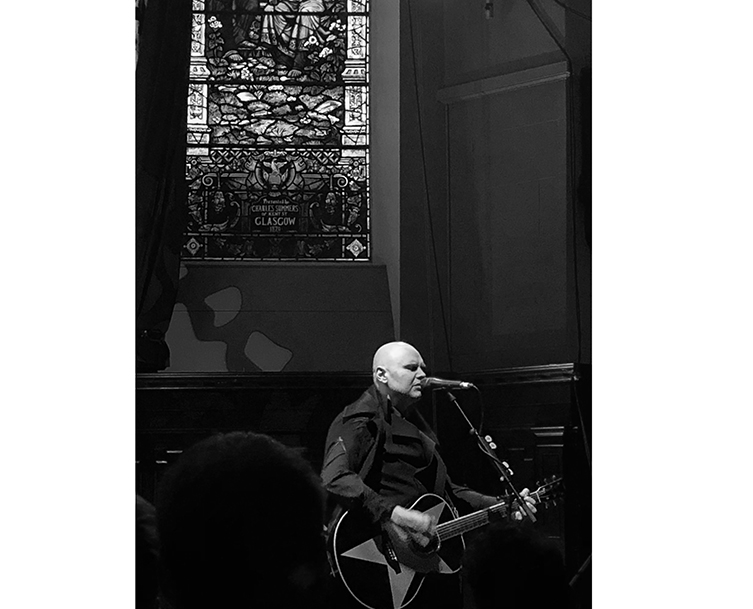
GG: No! Not at all! That’s the whole point! Just one thing I wondered before you go: you and I are both left-handed and play right-handed guitars. I think that’s actually a massive benefit to guitarists, especially with left hand technique, like lead guitar.
BC: Yeah.
GG: Is that something you would subscribe to?
BC: Ummmmmm, I think it makes me a poor rhythm player (laughs). I do take it, like, it did influence the way I play because my style is so aggressive in the left hand.
GG: Yeah.
BC: I mean, it’s particularly aggressive over there. There’s a lot of shaking.
GG: Is it still 9-gauge strings you use with electrics?
BC: Mmm...I don’t remember...
GG: Because you can always pull them a little bit sharp if you go a little bit too heavy-handed with them, right?
BC: Ummm, I might be back to playing 10s, I don’t know...
GG: The other thing, because I’m obsessed with plectrums, is that I always thought it’d be heavy gauge picks you use but I notice it’s .73’s out there (on stage). Is that just for the acoustic?
BC: During Siamese Dream times, I know I was using one point two, three, whatever was the heaviest gauge, because I could play so fast with those, because I do a lot of hammering on. And then at some point I went to the 1mm, I think because they recorded better maybe? And had a little bit more low end?
GG: Ahh, okay!
BC: Umm, and then for years I used the Dunlop Orange, whatever that gauge was...
GG: Sixty.
BC: Yeah, and now I’m going back to the middle gauge, the Yellow ones, I get them custom made but they’re the yellow ones because I like the attack more.
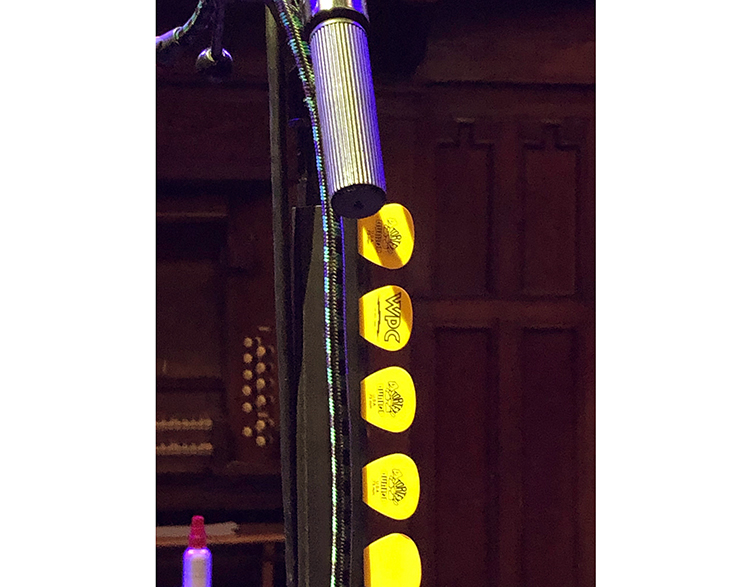
GG: Got you! They all do sound a tiny bit different too!
BC: There’s a company called, they might be called Pyramid plectrums? Tom Petersson of Cheap Trick turned me onto them but they don’t make tortoiseshell picks any more, like the way they made them in the 60s, like what the Beatles would’ve used...
GG: Yeah.
BC: But there’s a company that simulates it with plastic.
GG: Right.
BC: And they actually do sound different and I want to start using those more for acoustic and I just forgot.
GG: That’s interesting.
BC: There’re other companies that make tortoiseshell imitation picks but check it out, particularly for acoustic. They have a little more body, a little less attack and a little more body, and when you play, like, ‘She Loves You’, you actually hear, they’re a little bit more depth, and you go ‘Oh, that’s part of the sound!’
GG: Here’s the other thing, real quick. A friend of mine, I didn’t know this, but guitar sounds in the sixties were flatwound.
GG: As in, across the board?
BC: Yeah
GG: No way!
BC: So, Beatles, Kinks, all that stuff, you like any of that stuff?
GG: Yeah, sure!
BC: Like, ‘You Really Got Me’, they’re actually using flatwounds. And if you try it on an electric, like a period electric, with flatwounds, you go ‘That’s the sound that I’ve never been able to get!”
GG: That’s the missing element!
BC: There’s a certain kinda lower mid thrust, little less attack, little more ‘Woo-woo-woo-woo’.
GG: Wow!
BC: Yeah! Wow! Check it out sometime.
GG: Ok. Mind blown.
BC: It takes some getting used to on the left hand, I don’t think I could use them, but it’s definitely got the...if you wanna go down the rabbit hole, that’s one...
And with that, Billy made his goodbyes and headed towards the stage to soundcheck.
To me, it was over in a flash. Sitting down in the dressing room, sipping water as Billy made his tea, two guitar geeks just chatting about gear and songs!
That evening, Billy performed for well over two hours, introducing around 8 brand new songs from his forthcoming 3rd solo album. Several Pumpkins classis followed after a brief intermission, including ‘Tonite, Tonite’, ‘Wound’, ‘Thirty-Three’ and a piano version of ‘Disarm’.
Throughout the night, Billy peppered the set with anecdotes and stories from his storied songwriting and performing career. It was a rare treat for all Smashing Pumpkins fans to be so close to the legendary in an intimate venue.
It was a rare privilege to be given the opportunity to chat to Billy. We’d like to thank him for agreeing to talk to us, and to Tony from Yamaha for his help in setting this up for us. Check out our range of Yamaha acoustic guitars.
Keep keep up with all things Smashing Pumpkins and Billy Corgan from the Smashing Pumpkins website. It sounds like they have a busy year ahead of them!


